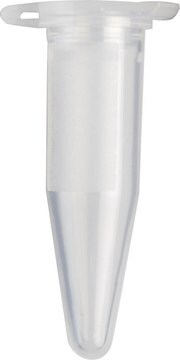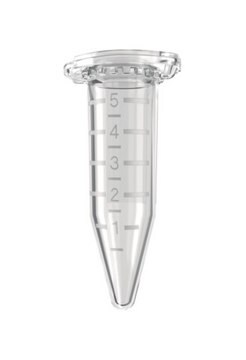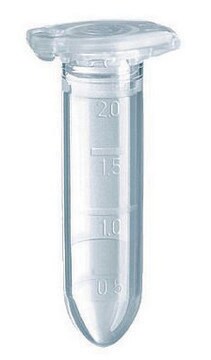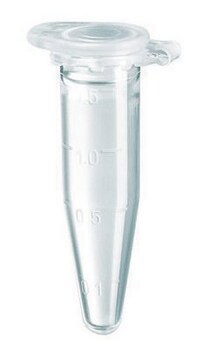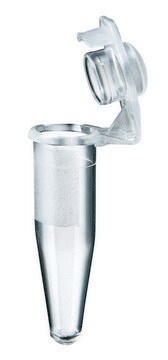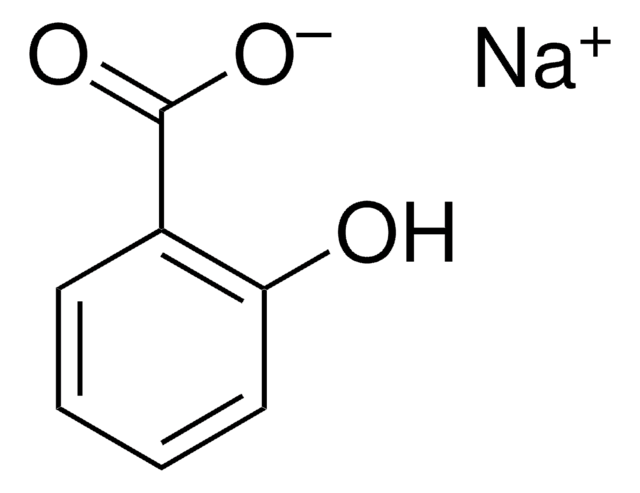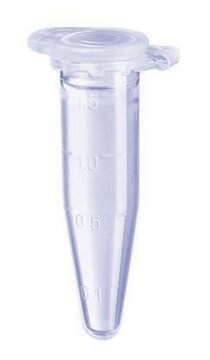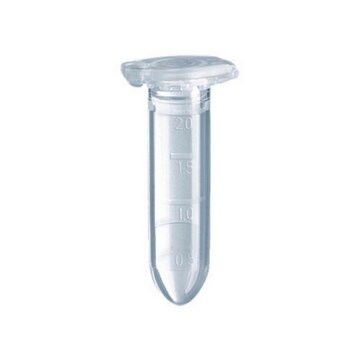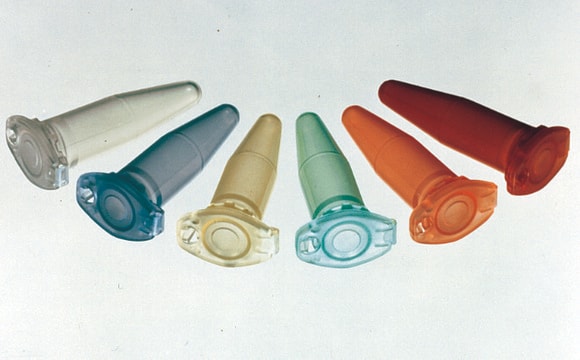T9661
Eppendorf® Safe-Lock microcentrifuge tubes
volume 1.5 mL, natural
Synonym(s):
eppendorf tubes, microcentrifuge tubes, microfuge tubes
About This Item
Recommended Products
material
cap (Safe-Lock lid)
polypropylene
sterility
non-sterile
feature
RCF 30,000 × g
manufacturer/tradename
Eppendorf® 0030 120.086 (EU)
Eppendorf® 022363204 (USA)
volume
1.5 mL
color
natural
Looking for similar products? Visit Product Comparison Guide
Related Categories
General description
Application
Features and Benefits
- The hinged Eppendorf Safe-Lock lid prevents the opening of the lid during incubation and storage
- The tubes are devoid of slip agents, plasticizers, and biocides
- The polypropylene tubes are highly resistant to chemicals, mechanical stress, and high temperatures
- The lid sealing prevents higher evaporation during storage
- Large frosted lid and surface on the side for easy labeling
- Functionality varies from -86 °C to 100 °C
- When open, it can be autoclaved at 121 °C for 20 mins
- Exceptional centrifugation stability up to 30,000 × g prevents sample loss due to tube breakage and ensures safety while working with hazardous samples
Legal Information
Certificates of Analysis (COA)
Search for Certificates of Analysis (COA) by entering the products Lot/Batch Number. Lot and Batch Numbers can be found on a product’s label following the words ‘Lot’ or ‘Batch’.
Already Own This Product?
Find documentation for the products that you have recently purchased in the Document Library.
Protocols
To determine the molecular weights of protein antigens, to study protein/protein interactions, to determine specific enzymatic activity, to monitor protein post-translational modifications and to determine the presence and quantity of proteins.
Our team of scientists has experience in all areas of research including Life Science, Material Science, Chemical Synthesis, Chromatography, Analytical and many others.
Contact Technical Service